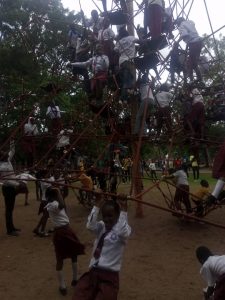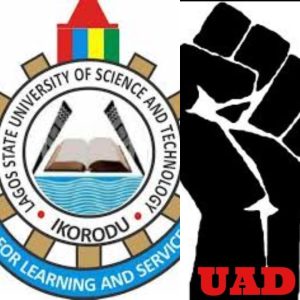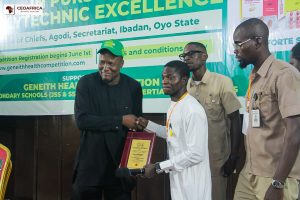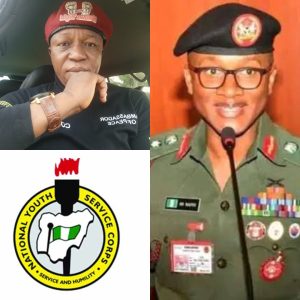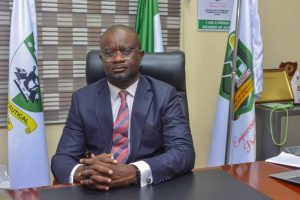FG appears to review the secondary school curriculum
4 min read
THE FEDERAL GOVERNMENT appears to be planning a review of the Secondary School Curriculum, which was first implemented in 2011.
Stakeholders are concerned that Nigerian secondary school graduates lack the necessary skills to function effectively in society, as artisans and other skilled workers are imported from neighboring countries.
🌿 Ruzu Non-Alcoholic Herbal Bitters
Ruzu Non-Alcoholic Herbal Bitters is a natural health supplement specially formulated to:
- ✅ Promote general wellness
- ✅ Detoxify the body
- ✅ Support the treatment of various ailments
Made from a powerful blend of 100% organic and medicinal herbs, Ruzu is completely alcohol-free, making it ideal for:
- 👪 All age groups
- 🌱 Health-conscious individuals
- 🌿 Anyone seeking non-alcoholic herbal remedies
Whether you're looking to boost your vitality, cleanse your system, or support healing the natural way, Ruzu Bitters offers a trusted herbal solution.
Read Also: Stop attacking me, concentrate on governance instead, Saraki Informs Kwara Governor
Despite the fact that the Federal Government approved the mandatory inclusion of trade subjects in secondary school curriculum and entrepreneurship education in tertiary education curriculum as part of efforts to close the skill gap, most schools in the country lack competent teachers and instructional materials to effectively handle the 37 trade subjects, according to reports.
Dr Benjamin Abakpa, Executive Secretary of the National Senior Secondary Education Commission (NSSEC), however, stated that his commission was committed to reversing the trend.
He stated that the Federal Government is currently reviewing the curricula used in secondary schools across the country for teaching and learning.
He stated that the Nigerian Educational Research and Development Council (NERDC) has been directed to collaborate with other government agencies to conduct a curriculum review, and that NSSEC is one of the agencies collaborating with NERDC to achieve this goal.
Abakpa was speaking at a three-day sensitization and advocacy program for education stakeholders in Benue State’s North-Central geopolitical zone.
Read Also: Military Pensions Board will soon clear 24 months of arrears – Chairman
Ismail Junaidu, NERDC’s Executive Secretary, recently confirmed the development when he stated that the current curriculum, which was introduced in 2011, needed to be restructured, realigned, and revised to meet the current global developmental challenge.
“You will agree with me that times have changed, the world has moved on, and new ideas have been created ten years after the introduction of the current SSE curriculum.” New goals have been set, new skills have emerged, and new technologies have been developed as knowledge has progressed.
“The only way we can keep up with these changes and provide opportunities for our children to learn new skills and competencies is to revise the curriculum and provide them with the necessary learning experiences.”
According to him, the council’s goal is to create a curriculum that “will also enable us to create the future that we desire as a people,” not just one that meets current needs.
Further, the NSSEC chairman stated that the commission had been charged with overhauling the senior secondary education system in order to meet the global minimum standard, and that it had devised realistic strategies to achieve this goal.
“The NSSEC vision statement focuses on providing quality knowledge grounded in life skills for global competitiveness to our senior secondary school students.”
“The NSSEC is also charged with assisting senior secondary schools in providing a well-balanced education system that produces well-rounded, confident, intelligent, and responsible youths who are ready to contribute meaningfully to national development,” he said.
“The Act establishing NSSEC prescribes national minimum standards for secondary education throughout Nigeria, manages the national secondary education fund, and other matters associated with it,” Abakpa explained.
Read Also: FG imposes 6% tax on digital services, non-resident companies
He stated that one of the steps being taken to address the issue of half-baked graduates from the system is to partner with NERDC to provide a well-reviewed and balanced curriculum that will stimulate quality learning while encouraging students to meet academic challenges using critical thinking skills.
As part of efforts to address the challenge of the skills gap in secondary education, Abakpa also requested World Bank assistance in the area of skill enhancement for Senior Secondary School teachers in the various 37 trade subjects.
He expressed confidence that the strategies being implemented would go a long way toward addressing some of the challenges that senior secondary education faces.
He also sought the support of all stakeholders to work with NSSEC to restore the lost glory of senior secondary education to its former glory.
“The Commission is tasked, among other things, with setting minimum standards and ensuring that secondary education meets the needs of the country as well as global competitiveness,” he said.
According to Abakpa, the commission is launching a nationwide campaign of public awareness and advocacy to engage all stakeholders in the project.
Read Also:Agriculture: We Must Return to the Land – President Muhammadu Buhari
He also stated that the commission was working to create an accurate database for all senior secondary schools in the country so that it could properly plan for them.
In his remarks, Benson Abounu, the deputy governor of Benue State, praised the Federal Government for reviving the law that established NSSEC and charged the commission to provide services to all and not be selective in its work.
He urged NSSEC’s leadership to ensure that the organization’s mandate of repositioning senior secondary education is carried out.


